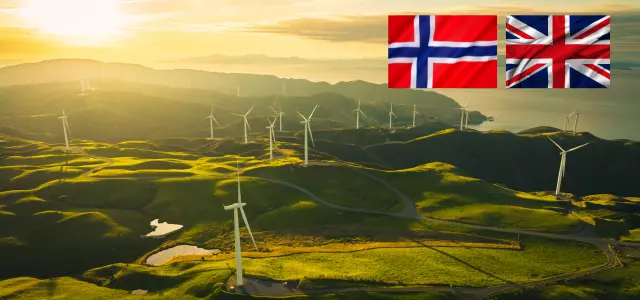
This article originally ran on Forbes.com on February 6, 2025. All rights reserved.
Daniel B. Markind is a Forbes.com energy column contributor. The views expressed in this article are not to be associated with the views of Flaster Greenberg PC.
Great Britain’s Labour Prime Minister Keir Starmer has shaken up the British political scene since July 2024, including making a priority of a “Net Zero” policy regarding energy generation and use in the United Kingdom. Led by Ed Miliband, who has the curious title of Secretary of State for Energy Security and Net Zero, Labour has initiated a policy seeking, among other things, to retrofit every building and electrify ground transport and heat.
Recently those Net Zero plans have generated much controversy. A renowned British scientist sent a letter to Mr. Milband this week branding his Net Zero plans a “fantasy,” and claiming that the cost of such Net Zero transition will hit £4.4 trillion. (Source).
Now Britain has another growing problem regarding the transition to renewable energy, this time in the field of international relations. On December 15, 2024, Norway and England announced a strategic partnership called the “Green Industrial Partnership” to increase cooperation concerning clean energy innovations. (Source). Great Britain doubled down on this by announcing the first construction of carbon capture projects in the Northeast of the Kingdom.
The euphoria of that announcement did not last long. Even though Great Britain’s imports of Norwegian energy have risen to £41B from £19B in the last five years, (Source), the UK now is more dependent than ever on political events in Norway, and that country’s government fell in January over energy nationalism. Specifically, a junior partner in the Norwegian governing coalition quit over that government’s plans to implement European Union green energy laws. (Source).
Importantly, before the Norwegian government’s fall, both governing parties indicated that they wished to end the energy supply deals that Norway has entered into with the United Kingdom and Germany. In December, as Germany faced a lack of wind, it dramatically increased its imports of Norwegian power, causing prices in southern Norway to soar by twenty times from one week to the next. A similar, if less dramatic price increase, occurred in Norway in 2022 when interconnection cables opened to both Great Britain and Germany. This has caused great consternation in the Scandinavian country, which suffers from energy prices that are six times the European average. (Source). The internal angst was so great that it brought down the government.
Under Britain’s Net Zero plan, its reliance on Norway will only increase, as the plan makes greater domestic use of intermittent sources to replace fossil fuels. This, in turn, raises questions about Britain’s overall energy security. Just this month, Britain came “within a whisker” of blackouts as the country faced an extended period without much wind.
The Labour Government and Britain’s National Energy System Operator have pushed back hard against the narrative of energy insecurity, but inside the Starmer government there is disagreement over the potential risk. With Norway’s Center Party, the smaller coalition partner, set to debate in April whether Norway should scrap the undersea power cables, that energy source no longer can be taken for granted.
Thus, Britain faces the same questions of any nation that seeks to transition from fossil fuels to intermittent, cleaner sources such as solar and wind. How do you secure sufficient energy at all times when the source is not always reliable? In Great Britain’s case it involves international implications, and the strain from these issues could cause political tensions even among countries who are erstwhile allies.
- Shareholder
Daniel B. Markind has over 40 years of experience as an airport, real estate, energy, and corporate transactional attorney. During that time, he has represented some of the largest companies in the United States in sophisticated ...


